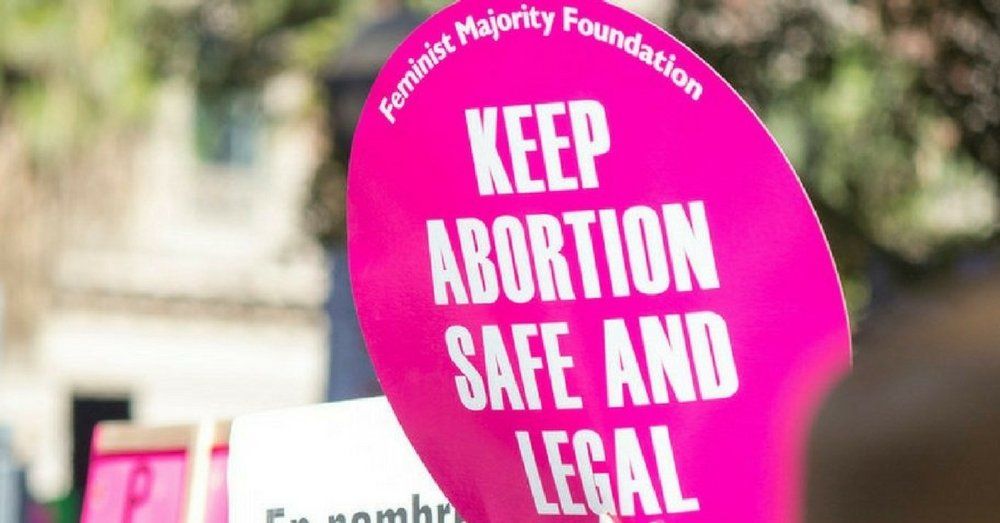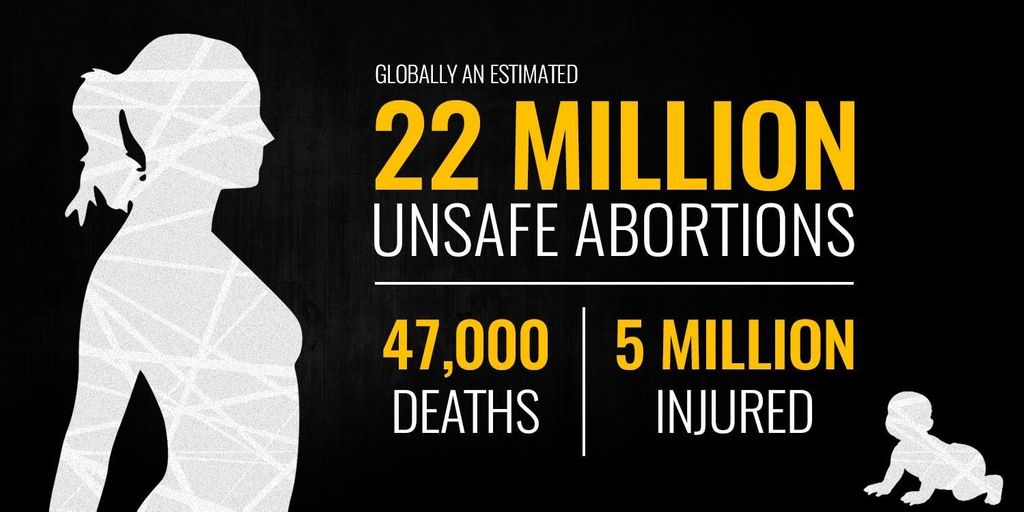Safe Abortion Is My Right
Mar 04, 2019 • 187 views
Abortions in India is legal. Under the Medical Termination of Pregnancy (MTP) Act, 1971, a woman is permitted to have an abortion up to 20 weeks of gestation.
While abortions are legal in India, the law as it stands today does not allow termination of pregnancy on the request of a woman. Yeah, that kinda sucks.In India, abortions are legal up to 12 weeks with approval from one service provider and beyond 12 weeks to 20 weeks requires the approval of two service providers. There are some other conditions listed in the Act: You can get an abortion if the service provider is able to assess that there is a risk to the woman’s life, a threat to a women's physical and mental health, or risks the child if born to be “seriously handicapped”.
However, it is subject to several conditions and your ability to get an abortion will depend on the opinion of the doctor. The law requires the doctor to assess if these conditions are fulfilled – only then are they legally allowed to perform an abortion. Conducting an abortion without fulfilling the conditions is considered a crime.

The Medical Termination Of Pregnancy Act, 1971, (the MTP Act) determines abortion as permissible when the fetus is less than 20-weeks old under the following circumstances:
Continuation of pregnancy is risky for the life of a pregnant woman or could potentially cause grave injury to her physical or mental health
There is a substantial risk that is born, the child could be severely handicapped due to physical/mental abnormalities
Pregnancy caused due to rape (presumably causing serious injury to the mental health of the woman).
Pregnancy caused due to the failure of contraceptives used by a married woman or her husband (presumably causing serious injury to the mental health of the woman).
An estimated 70,000 young women die each year undergoing an unsafe abortion. A safe abortion can save almost all these lives. While family planning and contraception have been promoted by the government, abortion continues to be an issue that is rarely discussed. A consequence of this is that many women are unaware that abortion has been legal in India for almost 50 years, under the Medical Termination of Pregnancy (MTP) Act, and do not have access to accurate information about when and where they can access safe services either.

Providing affordable, quality, and accessible sexual and reproductive health care, including safe abortion, as well as information, will go a long way to reduce morbidity and mortality among women. It will also ensure that women are able to fully participate in the social, economic and political activities and lead productive lives – crucial to their empowerment.
Young girls must receive comprehensive sex education, have the right to education, and women must be able to access contraceptives and safe abortion. In the absence of such bodily autonomy, the cycle of sexual abuse, marital rape, unintended pregnancies and unsafe abortions will persist.
In every country across the world – whether developed or developing – women should be able to take reproductive decisions, free of any coercion. It’s time to empower women with information and access to services and back them up with supportive policies so they canmake informed choices about their health and lives. It is their body, it should be their choice.
Have a question??You canfollow me on Instagram(@tanzilmahmood)and ask your travel questions in a direct message on Instagram too.
